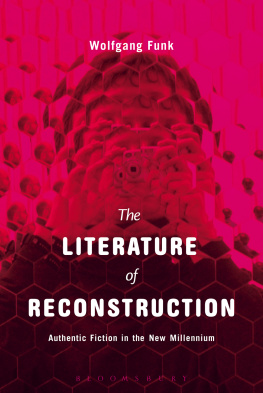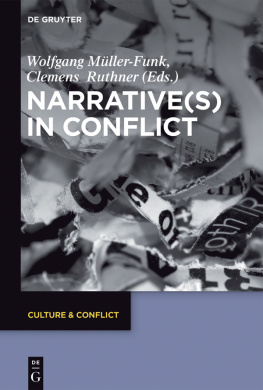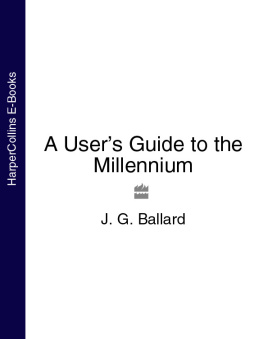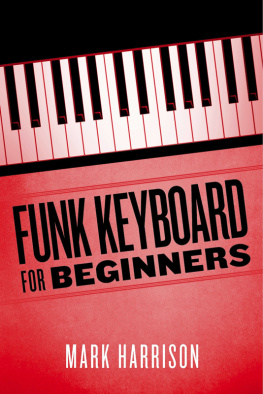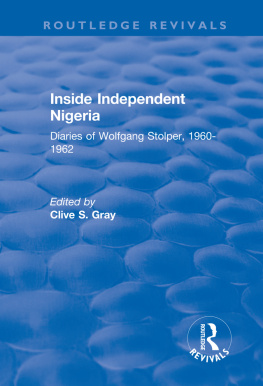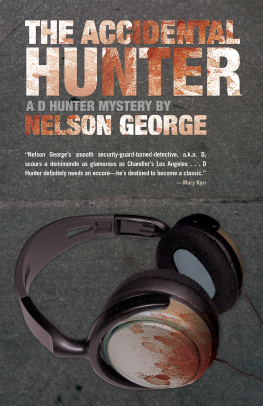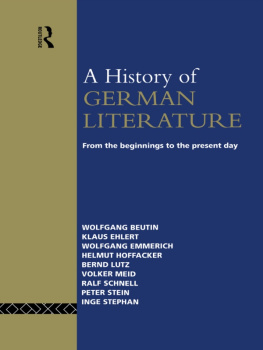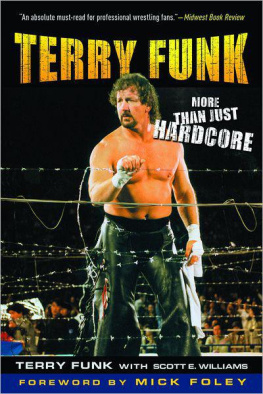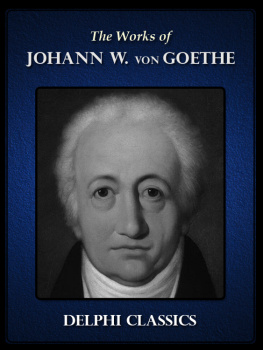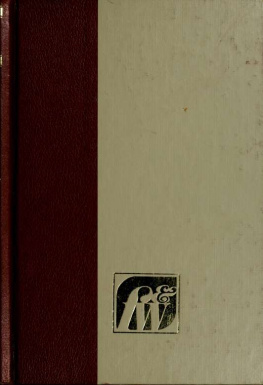Wolfgang Funk - The Literature of Reconstruction: Authentic Fiction in the New Millennium
Here you can read online Wolfgang Funk - The Literature of Reconstruction: Authentic Fiction in the New Millennium full text of the book (entire story) in english for free. Download pdf and epub, get meaning, cover and reviews about this ebook. year: 2015, publisher: Bloomsbury USA, genre: Religion. Description of the work, (preface) as well as reviews are available. Best literature library LitArk.com created for fans of good reading and offers a wide selection of genres:
Romance novel
Science fiction
Adventure
Detective
Science
History
Home and family
Prose
Art
Politics
Computer
Non-fiction
Religion
Business
Children
Humor
Choose a favorite category and find really read worthwhile books. Enjoy immersion in the world of imagination, feel the emotions of the characters or learn something new for yourself, make an fascinating discovery.
- Book:The Literature of Reconstruction: Authentic Fiction in the New Millennium
- Author:
- Publisher:Bloomsbury USA
- Genre:
- Year:2015
- Rating:3 / 5
- Favourites:Add to favourites
- Your mark:
- 60
- 1
- 2
- 3
- 4
- 5
The Literature of Reconstruction: Authentic Fiction in the New Millennium: summary, description and annotation
We offer to read an annotation, description, summary or preface (depends on what the author of the book "The Literature of Reconstruction: Authentic Fiction in the New Millennium" wrote himself). If you haven't found the necessary information about the book — write in the comments, we will try to find it.
Wolfgang Funk: author's other books
Who wrote The Literature of Reconstruction: Authentic Fiction in the New Millennium? Find out the surname, the name of the author of the book and a list of all author's works by series.
The Literature of Reconstruction: Authentic Fiction in the New Millennium — read online for free the complete book (whole text) full work
Below is the text of the book, divided by pages. System saving the place of the last page read, allows you to conveniently read the book "The Literature of Reconstruction: Authentic Fiction in the New Millennium" online for free, without having to search again every time where you left off. Put a bookmark, and you can go to the page where you finished reading at any time.
Font size:
Interval:
Bookmark:

The Literature of Reconstruction
The Literature of Reconstruction
Authentic Fiction in the New Millennium
Wolfgang Funk
Bloomsbury Academic
An imprint of Bloomsbury Publishing Plc

Contents
The authors name and the category monograph may suggest that this book is the work of a single human being. While this may be true from a purely materialistic and copyright perspective, it is also the case that the lives and opinions of a great number of people have shaped and influenced the final result you now hold in your hand. Without them, book and author would not have become what they are. The first and foremost to thank in this regard is Rainer Emig, my mentor since my earliest days at university. He trusted and believed in me long before I even thought about starting a project such as this. I hope that he reads the following pages as a tribute to his genuine combination of valuable guidance and advice (if needed) and unconditional trust and freedom (if desired).
During the long years it took for this project to develop from a series of fuzzy ideas into the material object of a book, I had the great fortune to meet a number of human beings whose ideas and personalities have significantly shaped this project and its author. My fellow explorer of reconstruction, Irmtraud Huber, has been an inspiration in more ways that she will ever know. I am indebted to Adam Kelly, Antonius Weixler and Tim Baker for valuable and enjoyable discussions of central ideas behind this book. I am proud to thank Katharina Bhne, Julia Boll, Claudia Georgi, Florian Gro, Maria Marczek-Fuchs and Sven Schmalfuss, whose superior knowledge and scholarship and quick wit, but above all loyal friendship, have made the journey exciting and delightful in equal measure. I thank my colleagues in Regensburg and Hannover for providing an atmosphere in which working has always been a great pleasure. I am particularly grateful to Lucia Krmer, whose affability, open ear and dialect have made our office a real home from home for me.
In preparing a manuscript for publication, there are always people who get involved without quite actually meaning to. I am immensely grateful to Ruth Mayer and Werner Wolf for reading earlier drafts of this book and very much hope they can recognize their ideas in the finished product. The same goes for the unnamed reader at Bloomsbury, who judging from the suggestions proffered understood the project better than I did myself. Haaris Naqvi has been a superbly supportive commissioning editor, and Mary Al-Sayed has shown extraordinary patience in answering any question I threw at her. Any remaining mistakes or misjudgements in the texts are my own.
Although a project like this takes up a rather substantial portion of ones waking (and occasional sleeping) hours, there is luckily also a big chunk of life where authenticity is lived rather than written about and where any notion of metareference tends to meet with a rather bemused shrug of the shoulders. Without the unconditional love, trust and support of my dear parents, Werner and Marieli Funk, I would be a lesser human being, and their life has been a living proof that authenticity is much more than merely an academic issue. My sister Moni has been my trusted confidante for as long as I can think, and her warmth, honesty and caring protection have put me back on track on more occasions than I care to remember. My two sons, Ferdinand and Florian, are too young bless them to remember their dad being mired in metareference, but their arrival has introduced a sparkle, devotion and purposefulness into my life which has so far stubbornly refused to go away.
And finally, the one on whom everything depends. Susie has been my be-all and end-all for so many wonderful years. Her love and affection, companionship and criticism, tolerance and kind-heartedness are certainly more than I deserve, and I know that a book is nowhere nearly adequate to requite this. Nevertheless, this is for you.
EA Jasper Fforde, The Eyre Affair
EE Julian Barnes, England, England
FS Jasper Fforde, First Among Sequels
HW Dave Eggers, A Heartbreaking Work of Staggering Genius
LGB Jasper Fforde, Lost in a Good Book
MKM Dave Eggers, Mistakes we Knew we were Making
OTM Jasper Fforde, One of our Thursdays is Missing
SE Julian Barnes, The Sense of an Ending
SR Jasper Fforde, Something Rotten
VGS Jennifer Egan, A Visit from the Goon Squad
WLP Jasper Fforde, The Well of Lost Plots
WDL Jasper Fforde, The Woman who Died a Lot
In part X of his , Edgar Allan Poe muses on the impossibility of writing truthfully about ones inner self:
If any ambitious man have a fancy to revolutionize, at one effort, the universal world of human thought, human opinion, and human sentiment, the opportunity is his own the road to immortal renown lies straight, open, and unencumbered before him. All that he has to do is to write and publish a very little book. Its title should be simple a few plain words My Heart Laid Bare. But this little book must be true to its title But to write it there is the rub. No man dare write it. No man ever will dare write it. No man could write it, even if he dared. The paper would shrivel and blaze at every touch of his fiery pen. (Poe 1981: 150; emphases in the original)
This book can be seen as an attempt to challenge Poes dictum. It investigates how contemporary works of literature renegotiate the relationship between experience and its representation in an attempt to truthfully re-enact experience through representation. I will argue that the notion of authenticity provides the formal and theoretical parameters for this renegotiation. The present relevance of authenticity is thereby not restricted to the field of academic criticism, where it is making a comeback, in the guises of memory, ethics, religion, the new sincerity, and the renewed interest in real things (Haselstein, Gross and Snyder-Krber 2010: 19). Authenticity also pervades many aspects of everyday life, as Charles Lindholms wide-ranging inventory demonstrates:
The quest for authenticity touches and transforms a vast range of human experience today we speak of authentic art, authentic music, authentic food, authentic dance, authentic people, authentic roots, authentic meanings, authentic nations, authentic products. A desire for authenticity can lead people to extremes of self-sacrifice and risk; the loss of authenticity can be the source of grief and despair. Authenticity gathers people together in collectives that are felt to be real, essential, and vital, providing participants with meaning, unity, and a surpassing sense of belonging. Authenticity can be sought internally, through transformative ecstatic experiences, or externally, in the consumption of goods that symbolize the really real. If a Rembrandt can be called authentic, so can Coca-Cola. Authenticity can describe tourist sites, the scent of floor polish, and the president of the United States. (2008: 1)
In this book I will make a case for the aesthetic category of metareference as the most fitting model for re-enacting the effect of authenticity on a formal level. I will argue that the effect of authenticity enacted in and through metareferential literature is the result of processes of reconstruction, which are triggered by the epistemological and ontological paradoxes inherent in metareference. I will therefore introduce the pragmatic and procedural category of reconstructive literature to describe this new development.
Font size:
Interval:
Bookmark:
Similar books «The Literature of Reconstruction: Authentic Fiction in the New Millennium»
Look at similar books to The Literature of Reconstruction: Authentic Fiction in the New Millennium. We have selected literature similar in name and meaning in the hope of providing readers with more options to find new, interesting, not yet read works.
Discussion, reviews of the book The Literature of Reconstruction: Authentic Fiction in the New Millennium and just readers' own opinions. Leave your comments, write what you think about the work, its meaning or the main characters. Specify what exactly you liked and what you didn't like, and why you think so.

